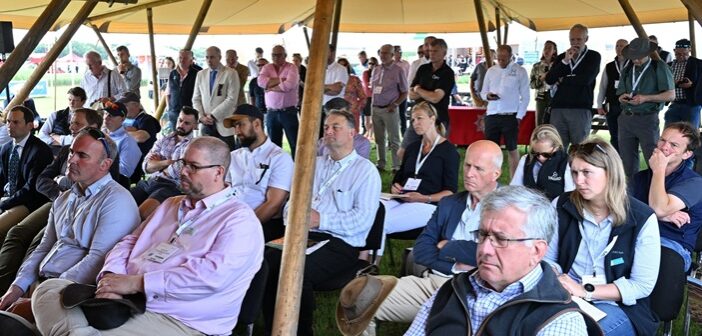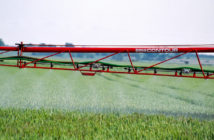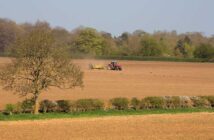Preparations for next year’s Cereals Event are well underway following a successful 2025 event.
With 426 exhibitors and a full conference programme, around 20,000 visitors went through the gates over the two days.
Reflecting on the event’s success, event director Alli McEntyre said the show had exceeded expectations. “From packed seminar tents to hands-on field demos and vital conversations about policy, climate, and innovation, the appetite for change and progress was clear. Cereals continues to be where the industry comes together to face the future, head-on.”
Those future challenges were documented by some of the industry’s leading voices.
“If we live in a volatile world where we’ve got to commit to rearming, then the other side of that is food security,” said NFU President Tom Bradshaw. “If the Government is serious about the defence risks, it’s got to look at food security.”
Energy security also took centre stage, with Frontier Agriculture’s Diana Overton raising concerns over the threat to the UK’s bioethanol industry posed by international trade deals. “The Vivergo and Ensus biofuel plants are so important to the industry,” she said. “Energy security is critical, so we need more cross-departmental thinking in Government.”
And with climate change intensifying, investment in water security was seen as urgent. “It’s currently more difficult to get permission for a reservoir than for the Sizewell C nuclear plant,” added Tom. “We need permitted development rights for reservoirs to improve productivity, resilience, and the environment.”
Jeremy Moody, secretary and adviser to the CAAV, warned that public finances were tightening and that Defra may not be able to deliver on its environmental pledges. “Defra is realising it can’t afford all the environmental goals it accepted as its inheritance,” he said. “The public finances appear to be in a worse position than last summer. And we know less about environmental management schemes now than we did two years ago.”
Jeremy noted that ministerial language is making it clear that farmers must treat their operations as businesses, not rely on future support. Changes to the Sustainable Farming Incentive (SFI) point to a shift toward supporting smaller farms, national parks, and Areas of Outstanding Natural Beauty.
Looking ahead, he predicted that less profitable farmers may choose to let land out, creating opportunities for others to scale up and produce food more profitably. “We will have thriving businesses in the 2030s and 2040s, which are so often created in times of adversity, like now,” he said. “The most important thing will be for farmers to manage change before it manages them.”
Next year’s event is to be hosted by Jeremy Clarkson at the Diddly Squat Farm.




